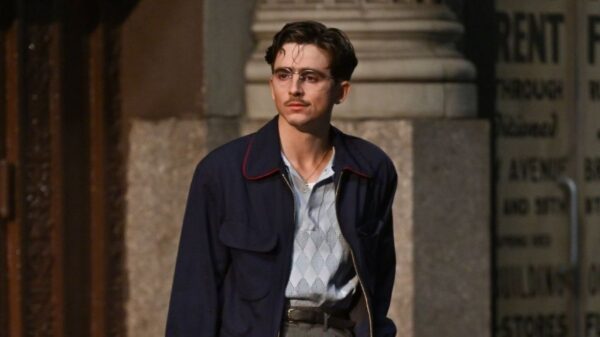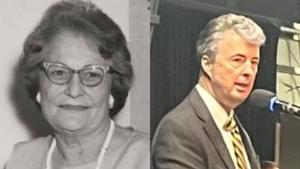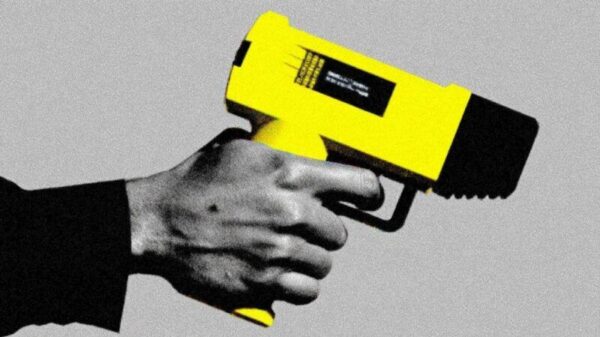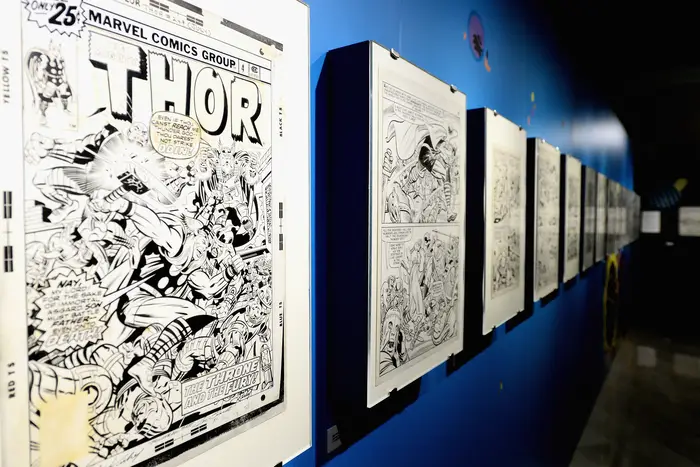A campaign is underway to co-name a street in New York City’s Lower East Side after Jack Kirby, the co-creator of many iconic Marvel Comics characters. Born in 1917 on Essex Street, Kirby’s influence on the comic book industry and popular culture is profound, yet he often received limited recognition during his lifetime. This initiative gained momentum during the recent New York Comic Con, where advocates discussed Kirby’s legacy and the importance of the proposed honor.
Roy Schwartz, a pop culture historian and critic, is one of the key figures behind this campaign. In a recent interview on “All Things Considered,” Schwartz highlighted Kirby’s significant contributions to the world of comics. He noted that Kirby, originally named Jacob Kurtzberg, experienced a challenging upbringing as the child of immigrants in a poor neighborhood. Despite these hardships, he displayed remarkable artistic talent and eventually found his way into the burgeoning field of comic books.
Throughout his career, Kirby co-created a multitude of beloved characters, including Captain America, Iron Man, the Avengers, X-Men, Black Panther, and the Fantastic Four. Schwartz emphasized that Kirby’s creations often drew inspiration from his own life experiences, particularly his childhood in the Lower East Side. For example, the character of the Thing from the Fantastic Four mirrors Kirby’s own persona, with his real name, Benjamin Jacob, paying homage to Kirby’s father and himself.
The specific location proposed for the co-naming is Essex Street between Stanton and Irvington. This area holds deep significance as it was where Kirby was born and raised. Schwartz explained that not only does the Lower East Side feature prominently in Kirby’s work, but it also serves as the origin for Captain America, who embodies the struggles of an impoverished youth from this very neighborhood. The character’s narrative parallels Kirby’s own life as he faced bullying and hardship growing up.
The local community board has already expressed support for the co-naming initiative. Schwartz noted the surprising enthusiasm from residents, many of whom were not previously familiar with Kirby. He recounted their excitement during discussions, with people’s faces lighting up at the mention of Kirby’s name. This grassroots support has helped propel the campaign forward.
The next steps involve a broader community board meeting, followed by approvals from district council members and the City Council, culminating in the mayor’s signature. Schwartz acknowledged that while the process may be lengthy, the enthusiasm has been encouraging.
Should the effort succeed, Schwartz hopes Kirby’s name on a street sign will resonate with the public. He believes that Kirby’s legacy transcends the comic book medium, as he is a foundational figure in modern popular culture. “Jack Kirby is a founding father of modern popular culture and of a beloved American mythology,” Schwartz stated. He believes that recognizing Kirby’s contributions is essential, even for those who may not be interested in comics.
Kirby’s innovative artistry and moral storytelling have provided inspiration and joy to countless individuals, not just in New York, but globally. His impact on pop culture is significant, as he helped shape the comic book industry and has influenced numerous artists and creators.
As the campaign to honor Jack Kirby continues, it highlights the importance of recognizing the contributions of influential figures in popular culture, ensuring their stories and legacies are preserved for future generations. The effort to co-name a street after him serves as a testament to his enduring impact on the creative landscape.







































































